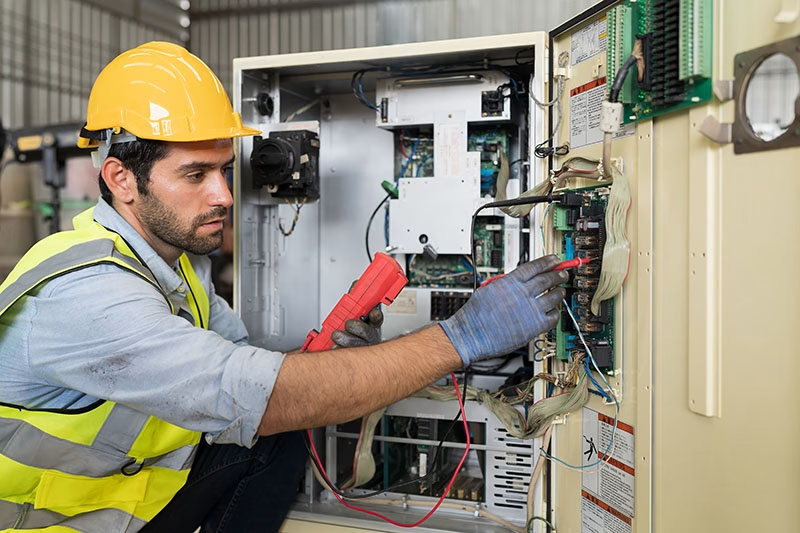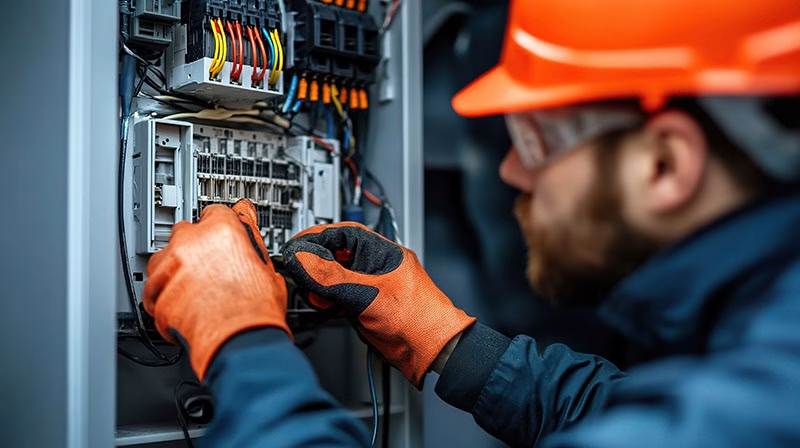The success of any construction or renovation project, be it a custom home, a sprawling commercial space, or a simple office overhaul, hinges significantly on its electrical infrastructure. Beyond merely powering lights and outlets, a modern electrical system must be safe, efficient, and capable of supporting future technological needs.
That said, choosing the wrong partner for your electrical contracting needs isn’t just a minor inconvenience; it can lead to costly delays, unsafe installations, and frustrating long-term issues that are expensive to rectify. So, this decision requires careful consideration and due diligence. It’s about securing a partner, not just a hired hand, who will ensure the circulatory system of your building is robust and reliable.
The Power of Proper Licensing and Insurance
Before you even look at a portfolio, the first non-negotiable step is verifying the contractor’s credentials. A reputable electrical contractor must hold all the necessary state and local licenses required for the scope of work you’re undertaking.
Licensing confirms that the contractor, or at least the supervising journeyman electrician or master electrician, has passed competency exams and understands the latest electrical codes. Never assume a contractor license is current; always ask for proof and cross-reference it with the issuing authority.
Equally crucial is comprehensive insurance coverage. This must include both general liability insurance to protect your property against damage caused by the contractor’s work and workers’ compensation to cover their employees in case of on-site injury. Without adequate insurance, you, as the property owner, could be held financially responsible for accidents or errors, turning your construction dream into a legal nightmare.
A reputable Fort Myers electrical contractor or one in your area has these credentials, so you can be sure about the safety and legality of your electrical project. Choosing such experts is your best defense against shoddy workmanship and potential financial liabilities down the road.
Assessing Experience and Specialization
An electrician who primarily works on residential service calls might not be the best fit for a complex commercial project involving high-voltage machinery or intricate data cabling. This is why relevant experience and specialization are vital.
Ask potential contractors about their background, particularly if they have an academic grounding in electrical engineering. If you’re building a highly efficient, “smart” home, you need someone who understands integrated automation systems, security systems, and not just basic wiring. If it’s a new industrial facility, they need proven expertise with three-phase power and heavy equipment installation.
Request a detailed list of their last three or four comparable projects and, crucially, ask to speak with those clients. References offer an unfiltered perspective on the contractor’s reliability, adherence to timelines, and professionalism.
Understanding Communication and Project Management
The best technical skills in the world are useless if the contractor is difficult to work with. Construction projects are dynamic, and effective communication is the lubricant that keeps the process running smoothly.
During the interview phase, pay close attention to how quickly and clearly they respond to your initial inquiries. Do they seem rushed or impatient, or do they take the time to thoroughly understand your project goals? A professional contractor should be able to present a clear, detailed scope of work, including details on integrating technologies like access control, and a realistic project timeline.
They should also designate a single point of contact for the duration of the job, ensuring consistency and preventing miscommunication. Furthermore, inquire about their crew’s size and supervision. A well-managed site means fewer delays and a higher quality final product.
Diving Into the Bidding and Warranty Details
When reviewing bids, resist the temptation to automatically choose the lowest price. A significantly lower bid often indicates corners are being cut, perhaps by using lower-quality materials or skipping critical steps. Instead, focus on the transparency and thoroughness of the proposal.
A good bid from a certified electrical contractor will be broken down line by line, detailing labor costs, material specifications (brand and model number, not just “wire”), permit fees, and any allowance for unexpected issues. Ask about the materials they intend to use; quality, industry-standard components will ensure longevity and safety.
Finally, a hallmark of a confident and reliable contractor is a solid warranty on their workmanship. This guarantee provides crucial protection against defects or failures that emerge after the final inspection. Understand the duration and coverage of this warranty before signing the contract.
Conclusion
Choosing an electrical contractor is one of the most impactful decisions you’ll make on your project. It’s an investment in safety, efficiency, and the long-term value of your property. By focusing your selection process on verified licensing, relevant experience, open communication, and transparent bidding, you can significantly mitigate risk. Take the time to interview thoroughly, check references, and ensure a mutual understanding of expectations. The right contractor will not only meet the current code requirements but also anticipate your future needs, leaving you with an electrical system that reliably and safely powers your success for years to come.

